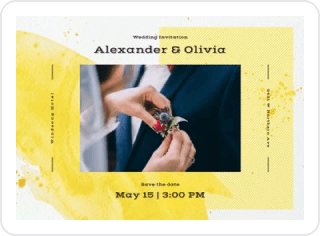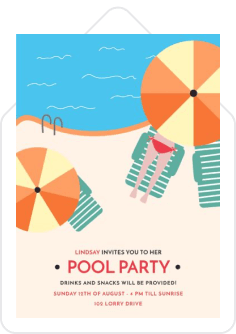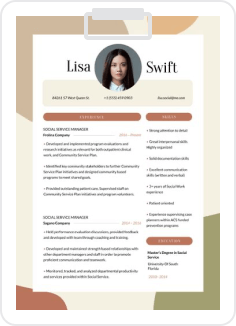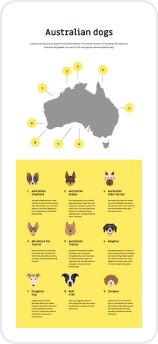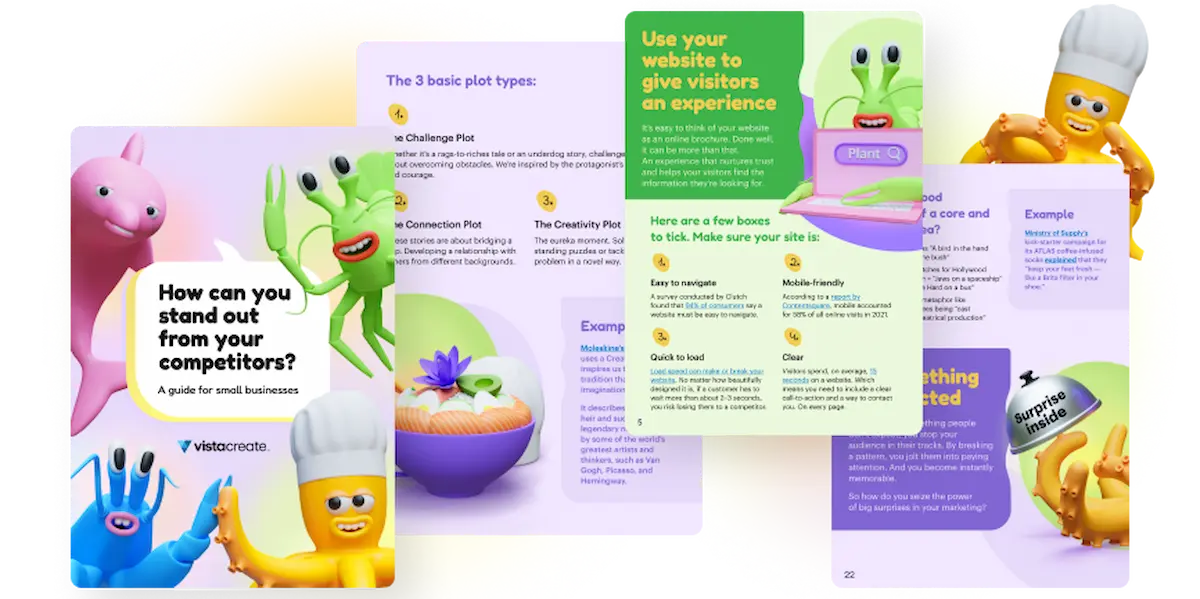Find out how leisure travels make you a better entrepreneur
Travels and business go hand in hand. With both, it’s about picking the best deal, making strategic decisions and investments, meeting new people, and negotiating like your life depends on it. The last one may be a stretch, but traveling can be quite unpredictable.
Your path as an entrepreneur can certainly take you far, and you might even end up visiting foreign lands. But let’s put that aside and focus on you — travels you take for the sake of unwinding.
In this article, we take apart how travel for leisure can help you revamp your entrepreneurial spirit and contribute to building your character.
Travels expand your cultural mindset
It’s official: thanks to social media and the internet, the world has become somewhat borderless. We can connect with anyone we want, attend global conferences, read in-depth research on consumer behavior— for instance, why Australians choose ridesharing and if Brazilians prefer digital shopping to brick-and-mortar stores. It’s so easy to watch a documentary about Nordic cuisine traditions or order a new book about doing business in Spain. The amount of insight you get online is endless, but… is that the best way to explore the world?
Real-life experiences offer so much value. The value that simply cannot be conveyed in documentary films or even in live podcasts. These nuances provide you with a true and deep understanding of nations, people, and cultures. The only way to tap into cultural phenomena is to actually get into the very heart of them.
It is hard to compare service in Istanbul and Beijing street cafes until you get a cup of coffee or green tea there. One would not know how to choose various products until he or she buys shrimp at a farmer’s market in Porto or a chair at a furniture expo in Milan. These experiences are priceless: even if you are not going to open a cafe or make sofas, you’ll see different communication strategies in various selling points and unlock insights in regards to seller and buyer mindsets across the globe.
What would be even more valuable is to analyze the ways people do things. Try to research a little about the cultural and historical context of the country (or city, or nation) you are in, and try to understand why these patterns were created. For example, why simple garage sales are so common in the USA, and where people prefer to shop vintage products at special antique stores or even online markets.
How to make the most of it
Become a real explorer. Not just to observe; try to understand connections and figure out certain patterns of behavior around you—in business and other areas of life. Give the following questions some thought:
- What amazed me today?
- What made me upset today?
- What did I learn today?
- What would I like to integrate into my life and work?
Simply accumulating experience will not do you any good, it is important to analyze these intakes. Write down your insights in your notebook—a physical Moleskine or a digital one made in VistaCreate:

Travels boost creativity
Travel exposes you to new cultures, ways of life, and experiences that can help broaden your perspective and inspire new ideas. You accumulate your knowledge, broaden your vision, and even enhance intuition (because the last comes with experience).
Traveling can be a great way to open up new ways of thinking as it stimulates your mind and helps you come up with creative solutions to problems you may be facing in your business. As an entrepreneur, it is important to constantly be on the lookout for new ways to solve issues—and stay ahead of the competition.
Many successful entrepreneurs credit travel as a key source of inspiration for their business endeavors. Lyft founder Logan Green and Toms ideator Blake Mycoskie (to name a few) got an idea to start their businesses when they hit the road. Casual travel can boost creativity by exposing you to new ideas and different perspectives. Seeing how other people live and do business can give you fresh insights.
When you’re in a new place, you may be more likely to try new things and consider alternative viewpoints. This can help you to combine ideas in new and innovative ways and come up with creative solutions to business problems. Seeing how people in other places live, work, and think can expose you to new ways of doing things and inspire creative approaches.
For example, you might visit a place where a particular industry operates differently than it does in your own country, and you might be able to draw on those differences to develop new insights for your own business. Or, you might encounter a problem that people in the local community have solved in a unique way, and you might be able to adapt that solution to fit your own needs.
How to make the most of it
One way to take advantage of traveling is to make a habit of taking notes while you are on your trip. This can help you capture new perspectives as they come to you, and can serve as a reference point for future brainstorming sessions. Here are a few tips for taking effective notes while traveling:
Be specific: instead of just writing down general impressions or observations, try to be as specific as possible. For example, rather than writing “interesting food,” write down the specific dishes or ingredients that caught your attention.
Include context: in addition to noting what you see and hear, be sure to include any relevant context or background information. This can help you better understand the significance of your observations.
Use prompts: use prompts or questions to guide your note-taking and help you focus on key issues or ideas. For example, you might ask yourself, “What are the biggest challenges facing businesses in this region?” or “What are some innovative solutions I’ve seen here?”
Keep it organized: use headings, subheadings, and bullet points to organize your notes and make it easier to review and refer back to them later.
By taking detailed and organized notes while traveling, you’ll be better able to capture new ideas and use them to inspire creative brainstorming when you need it. Notes can be organized in so many ways — and photobooks are one of them. Capture your experience in all ways possible, including visually.

Travels enhance flexibility
Traveling can certainly teach you to be flexible and adaptable. When you’re in a new place, you may encounter unexpected challenges or changes in plans, and you’ll need to be able to roll with the punches and find ways to make things work. This can involve being open to trying new things, being willing to change your plans on the fly, and being resourceful in finding solutions to problems.
In addition to helping you adapt to new situations, traveling can also teach you to be more open-minded and open to new experiences. This can involve stepping outside your comfort zone and trying new things, whether that’s trying new foods, participating in local customs, or engaging with people from different cultures.
It’s important to stay aware of and consider your limitations when traveling. This skill is super important not only on trips, but when running a business, too. So, always mind the following:
1. Time constraints: be realistic about how much time you have for leisure travel and plan your trip accordingly. It’s better to have a shorter but more focused trip than a packed trip that’s rushed or stressful.
2. Physical limitations: consider any physical limitations you may have and plan your trip accordingly. For example, if you have mobility issues, you might want to choose a destination that is more accessible or choose less strenuous activities.
3. Budget: consider your budget and choose a destination and activities that fit within your means. This can help you avoid financial stress and ensure that you have an enjoyable trip.
By taking the time to consider your needs and preferences, you can create a trip—or business—that is tailored to your unique needs, values, and expectations.
It can be helpful to approach travel with a balanced perspective, being both optimistic and realistic in your planning. On the one hand, it’s important to be optimistic and look for the positive aspects of your trip. At the same time, it’s important to be realistic and prepared for unexpected challenges or setbacks.
One way to balance optimism and realism in your travel planning is to create a Plan B. This can help you adapt to changes and ensure that you still meet your business goals, even if your original plans don’t go as expected. Your Plan B might include alternative activities or meetings, backup accommodation or transportation options, or contingency funds in case of unexpected expenses.
How to make the most of it
Having a Plan B can help you stay on track with goals despite any unexpected challenges or setbacks in any life situation. For example, if you’re traveling and a ride gets canceled or rescheduled, having a Plan B can help you make the most of your time and still meet your goals.
Here are a few tips for developing a Plan B for travels:
- Identify potential challenges: think about what might go wrong on your trip and come up with alternative solutions for each scenario. For example, consider what you would do if your flight gets delayed, if you get sick, or if you encounter other unexpected challenges.
- Communicate with your companions: if you’re traveling with other people, make sure they know your Plan B and have the information and resources they need to support you. This can help you stay connected and ensure that everyone is on the same page.
- Be flexible: be prepared to adjust your Plan B as needed and be open to new ideas and solutions. Remember that unexpected challenges can often lead to new opportunities and creative problem-solving.
Travel expands networking
Travel can also provide opportunities to meet new people and collaborate with others. Connecting with people from different backgrounds and industries can spark new ideas and help you see problems from different angles. This can be especially valuable for entrepreneurs, as collaborations and the exchange of ideas are often important parts of the creative process.
Overall, traveling can be a great way to expand your business connections—many entrepreneurs find their new team members or partners on trips. Here are a few tips for using travel to expand your business networking and improve your pitch:
- Be proactive: don’t wait for networking opportunities to come to you – make an effort to seek them out. Introduce yourself to people in your industry or related fields and ask if they’d be interested in meeting for coffee or a quick chat.
- Practice your pitch: use your travels as an opportunity to practice your elevator pitch and get feedback. Whether you’re at a networking event or just chatting with someone in line at the airport, be ready to pitch your business and ask for feedback on your delivery.
- Pay attention to cultural differences: if you’re traveling internationally, pay attention to cultural differences in communication styles and be mindful of how you present yourself. This can help you communicate more effectively and build stronger connections with people from different cultures.
Overall, traveling can be a great way to expand your networking and improve your communication skills. Before you travel, do some research on the local values, beliefs, and customs of people from different backgrounds. This can help you better understand how to build relationships and negotiate (if this is needed). When you travel, you’ll likely have the opportunity to interact with locals and learn about their way of life. This can give you more understanding of people on a more personal level and see the world from their perspective.
How to make the most of it
Traveling certainly helps you learn about diversity and develop a more open-minded and inclusive attitude, which is one of the hottest corporate trends.
Traveling can also expose you to a diverse group of people, which can help you understand different points of view and ways of thinking.
By engaging with people from different cultures and backgrounds, you can develop a more inclusive attitude and become more open to new ideas. It certainly helps you learn about diversity and develop a greater sense of respect for different cultures and ways of life.
Travels help recharge mentally and physically
One of the most important benefits of leisure travel is the opportunity to relax and unwind. Taking a break from the daily grind helps you recharge physically and emotionally and give you the energy and motivation you need to tackle your work with renewed enthusiasm.
Casual travel also provides an opportunity to try new activities, such as hiking, surfing, or yoga, which help you stay active and energized. This can give you a sense of accomplishment and satisfaction. Traveling with loved ones or connecting with family and friends while you’re away also give you an opportunity to recharge emotionally. Building relationships and creating meaningful memories make you feel more fulfilled and satisfied, which can contribute to a healthy emotional state.
Leisure travel provides a much-needed break from your daily routine and gives you the space and time you need to reflect on your values and priorities. By being open to new experiences and engaging with locals and other travelers, you can learn more about the world and gain new insights that inspire you to take a new look at your values.
How to make the most of it
Reflect on your actions—consider whether your actions during your trip are aligned with your values. If not, consider what changes you can make to align your actions with your values better.
Summing up
Leisure travel can help improve business insights and expose you to new experiences.
Visiting different places gives you the opportunity to learn about new industries and markets that you may not have been aware of before. This offers valuable business insights and potentially identifies new opportunities for your business. It also helps you develop your cultural competency and better understand different markets and customer needs.
Traveling also can help you develop important skills such as problem-solving, decision-making, and adaptability, which are all valuable (if not to say essential) for entrepreneurs. And, of course, casual trips will allow you to take a break from your everyday routine and come back to your business with a fresh perspective and new ideas.
This is important because business is a long journey that requires you to grow yourself, your team, and your product — and for that, you’ll definitely need the world to generously provide you with insights through travels.







